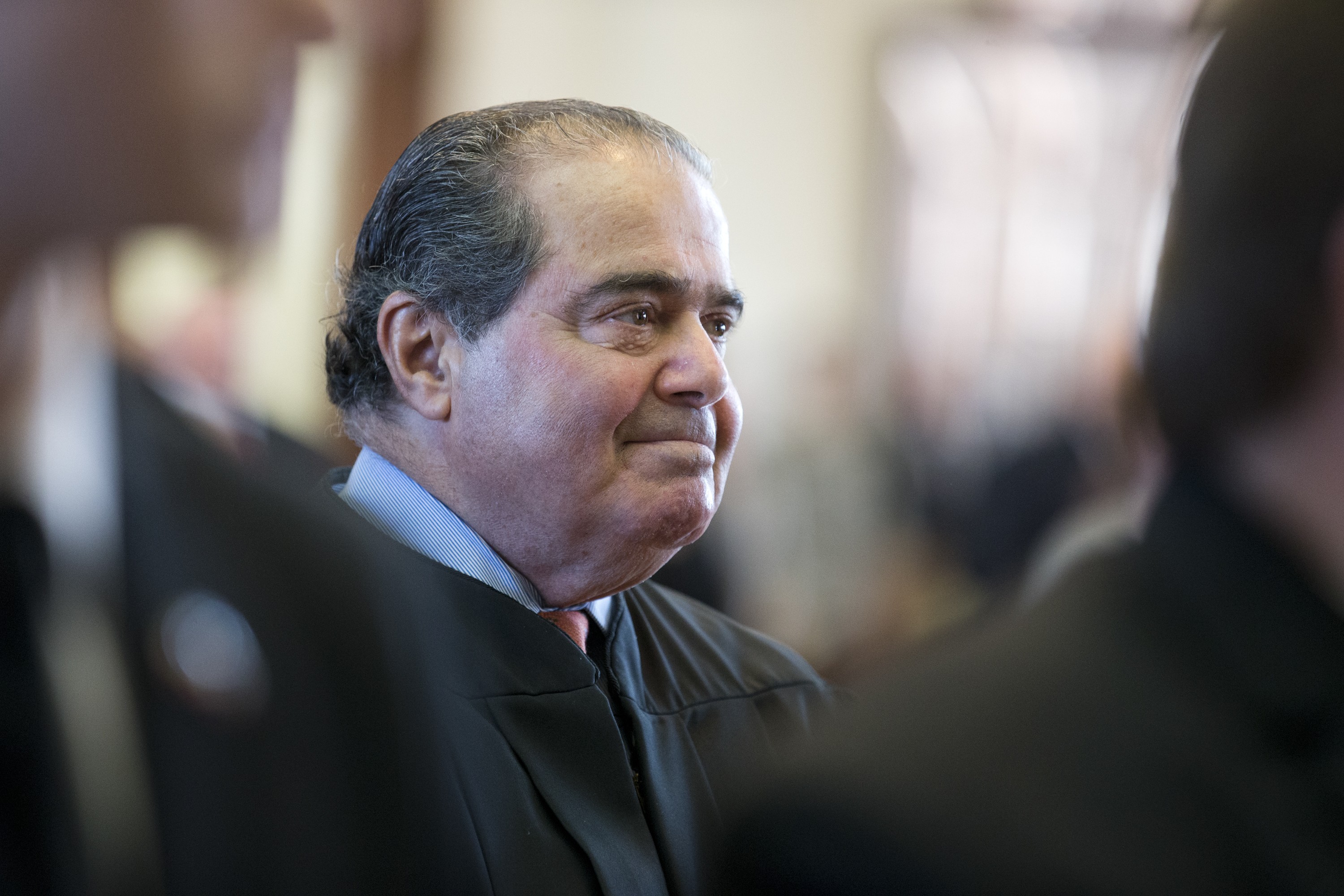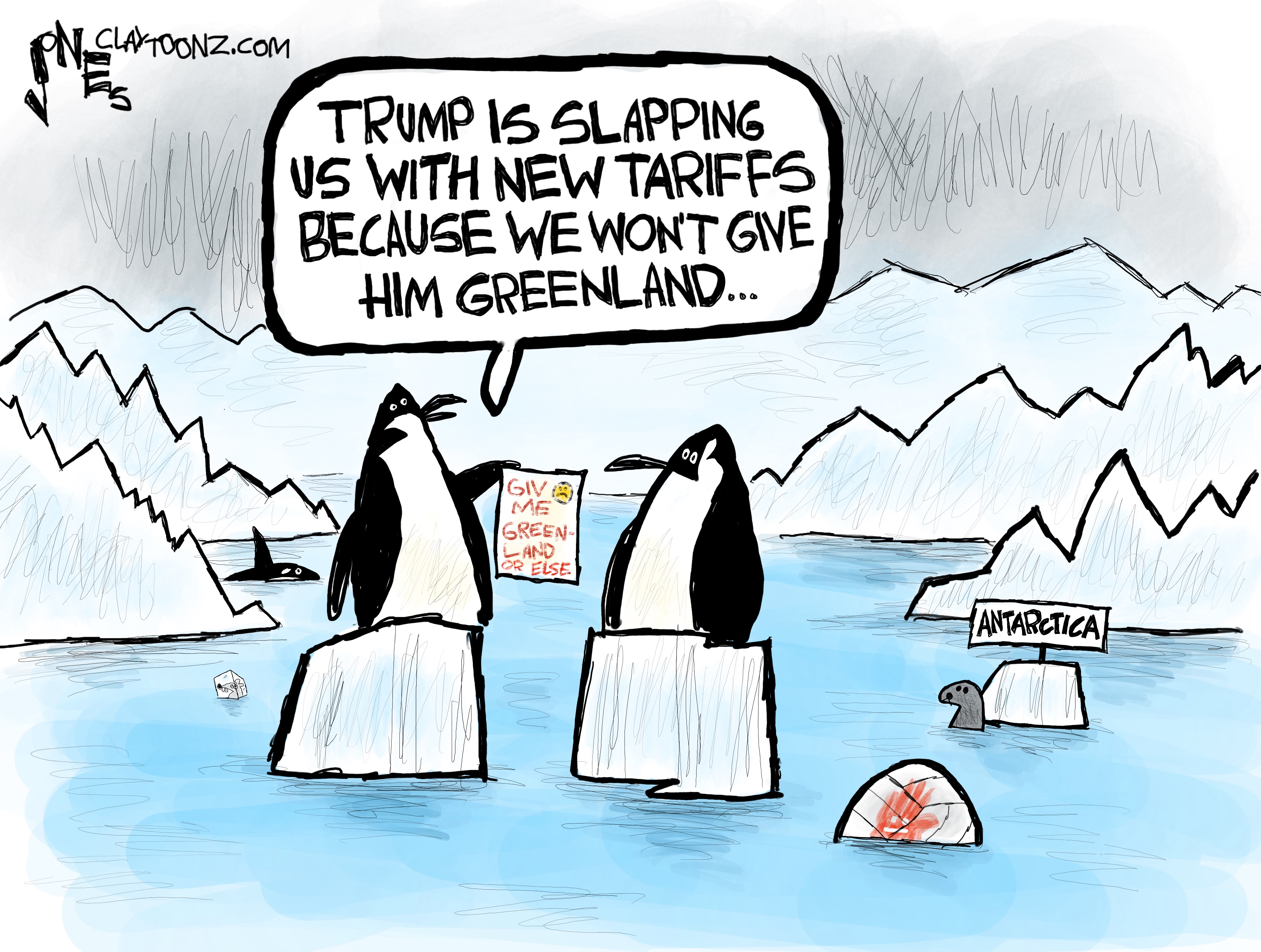Why Scalia's death might have robbed progressives of an unexpected immigration ally
Here's why the justice might have backed Obama in the upcoming DAPA decision


Later this spring, the Supreme Court is expected to hear the case of President Obama's controversial executive immigration order. Issued in 2014, Deferred Deportation for Parents of Americans (DAPA) would not only allow millions of illegal parents to stay in the country, but also obtain temporary work permits and drivers licenses. Supporters of this so-called executive amnesty are no doubt secretly relieved at the sudden death of Supreme Court Justice Antonin Scalia. The pugnacious ideologue would have ruled against them, right? Maybe. But maybe not. Scalia may have been more persuadable than they think.
As far as liberals are concerned, Scalia was a social conservative who invoked the Constitution when it advanced his right-wing agenda (such as gun rights) and discarded it when it advanced his opponents' agenda (such as gay marriage, abortion rights, and ObamaCare). But that's a gross caricature which ignores that, at the end of the day, Scalia believed more in judicial restraint than ideology.
Yes, Scalia issued an overwrought dissent in Arizona vs. United States, the 2012 decision that overruled much of Arizona's notorious "your paper's please" policy. In it, he took a bizarre swipe at President Obama's Deferred Action for Childhood Arrivals (DACA) order, the predecessor of DAPA that was not even before the Court. "The president said at a news conference that the new program is 'the right thing to do' in light of Congress's failure to pass the administration's proposed revision of the Immigration Act," Scalia railed. "Perhaps it is, though Arizona may not think so."
The Week
Escape your echo chamber. Get the facts behind the news, plus analysis from multiple perspectives.

Sign up for The Week's Free Newsletters
From our morning news briefing to a weekly Good News Newsletter, get the best of The Week delivered directly to your inbox.
From our morning news briefing to a weekly Good News Newsletter, get the best of The Week delivered directly to your inbox.
Such purple condemnations would seem ominous for DAPA's chances, yet a "no" vote from Scalia was far from certain. That's because Scalia had strong (though somewhat inconsistent) civil libertarian tendencies that more than occasionally came to the defense of immigrants. Also, his judicial commitment to apply the text of the Constitution and law as written may well have prompted him to uphold these programs.
According to Benjamin N. Cardozo School of Law's Andrea Saenz, "Scalia voted with his liberal colleagues for the noncitizen over the government in nearly every landmark crimmigration case [sentencing of immigrants involved in crimes] in recent history." Scalia applied something called categorical analysis in such cases, which limits the circumstances under which harsh federal sentences apply to immigrants convicted of crimes. This showed that Scalia had no inherent animus against immigrants and could be convinced by good arguments based on proper statutory construction, observes Saenz.
The standard rap against DACA and DAPA is that these programs violate the Constitution's "take care" clause, which requires a president to "faithfully" enforce the laws of the land. But, notes George Mason University law professor Ilya Somin, faithfully executing the laws does not mean that the president must prosecute every violation of every federal law. That would be neither possible nor desirable given that there are more than 3,000 different federal crimes on the books and more than 300,000 regulations. An average citizen ends up committing three federal felonies per day. For example, marijuana is an illegal substance under the federal Controlled Substances Act, and anyone who uses it is violating federal law. Yet the feds systematically fail to prosecute users, especially on college campuses. But no one claims that this failure is a violation of the Constitution.
Similarly, the real issue with DACA or DAPA is not their constitutionality, but their fidelity to standing immigration statutes. And there are very good reasons to believe that they are perfectly consistent with these statutes.
A free daily email with the biggest news stories of the day – and the best features from TheWeek.com
No one, not even the 26 state attorney generals suing the administration, disputes that the president has the authority to set immigration enforcement priorities under the Immigration and Nationality Act (INA). If he chose not to deport a single undocumented worker, he would be acting well within his legal prerogative (although the political fallout would be another matter). Critics also concede that the president is entitled to offer case-by-case deportation relief. What they oppose is mass relief to several million illegal immigrants.
And two of three Fifth Circuit Court judges agreed with these critics. The judges argued that the president's executive actions thwart the "Congress' stated goal of closely guarding access to work authorization and preserving jobs for those lawfully in the country." But this rationale cannot withstand the kind of strict originalist scrutiny that Scalia favored. The Constitution gives Congress no authority to restrict immigration flows to protect the labor market, except to prohibit slavery. It would be the height of hypocrisy to criticize the president for overstepping his constitutional limits while giving Congress free rein to overstep its.
However, the plaintiffs raised another, seemingly more powerful objection to the expanded DACA and DAPA programs: The programs illicitly circumvent the INA's "specific and detailed" scheme for allocating visas to various classes of foreigners. For example, the INA requires illegal immigrant parents of Americans to wait until their children are 21 before applying for a visa. And then, in order to qualify, they must spend 10 years out of the country. DAPA dispenses with all of this and creates a parallel process by executive fiat.
But what this argument, endorsed by a Fifth Circuit majority, ignores is that the INA's requirements give permanent legal status to undocumented workers whereas their legal status under DAPA is only temporary. More to the point, as the dissenting judge noted, just because DAPA status is not specified in INA doesn't mean it's illegal. The categories of foreigners covered by INA are not exhaustive and were not meant to be. Congress deliberately left much to the executive's discretion.
Congress, of course, could always amend the law and prohibit DAPA-style orders. But it hasn't. "The policy decisions at issue in this are best resolved not by judicial fiat, but via the political process," the dissenting judge noted.
This is a statement that would have resonated with Scalia and might well have prompted him to set aside his qualms and uphold these programs. And his blessing would have gone a long way toward legitimizing a pro-DAPA ruling to a cynical conservative rank-and-file that distrusts the administration on this issue. Without him, it'll just be much harder sell because no other justice — liberal or conservative — enjoys his street cred with these folks.
This is not good news for supporters of Obama's executive actions who need popular buy-in to ultimately make these programs stick. They ought to mourn Scalia's death as much as his most ardent fans.
Shikha Dalmia is a visiting fellow at the Mercatus Center at George Mason University studying the rise of populist authoritarianism. She is a Bloomberg View contributor and a columnist at the Washington Examiner, and she also writes regularly for The New York Times, USA Today, The Wall Street Journal, and numerous other publications. She considers herself to be a progressive libertarian and an agnostic with Buddhist longings and a Sufi soul.
-
 Political cartoons for January 19
Political cartoons for January 19Cartoons Monday's political cartoons include Greenland tariffs, fighting the Fed, and more
-
 Spain’s deadly high-speed train crash
Spain’s deadly high-speed train crashThe Explainer The country experienced its worst rail accident since 2013, with the death toll of 39 ‘not yet final’
-
 Can Starmer continue to walk the Trump tightrope?
Can Starmer continue to walk the Trump tightrope?Today's Big Question PM condemns US tariff threat but is less confrontational than some European allies
-
 The billionaires’ wealth tax: a catastrophe for California?
The billionaires’ wealth tax: a catastrophe for California?Talking Point Peter Thiel and Larry Page preparing to change state residency
-
 Bari Weiss’ ‘60 Minutes’ scandal is about more than one report
Bari Weiss’ ‘60 Minutes’ scandal is about more than one reportIN THE SPOTLIGHT By blocking an approved segment on a controversial prison holding US deportees in El Salvador, the editor-in-chief of CBS News has become the main story
-
 Has Zohran Mamdani shown the Democrats how to win again?
Has Zohran Mamdani shown the Democrats how to win again?Today’s Big Question New York City mayoral election touted as victory for left-wing populists but moderate centrist wins elsewhere present more complex path for Democratic Party
-
 Millions turn out for anti-Trump ‘No Kings’ rallies
Millions turn out for anti-Trump ‘No Kings’ ralliesSpeed Read An estimated 7 million people participated, 2 million more than at the first ‘No Kings’ protest in June
-
 Ghislaine Maxwell: angling for a Trump pardon
Ghislaine Maxwell: angling for a Trump pardonTalking Point Convicted sex trafficker's testimony could shed new light on president's links to Jeffrey Epstein
-
 The last words and final moments of 40 presidents
The last words and final moments of 40 presidentsThe Explainer Some are eloquent quotes worthy of the holders of the highest office in the nation, and others... aren't
-
 The JFK files: the truth at last?
The JFK files: the truth at last?In The Spotlight More than 64,000 previously classified documents relating the 1963 assassination of John F. Kennedy have been released by the Trump administration
-
 'Seriously, not literally': how should the world take Donald Trump?
'Seriously, not literally': how should the world take Donald Trump?Today's big question White House rhetoric and reality look likely to become increasingly blurred
